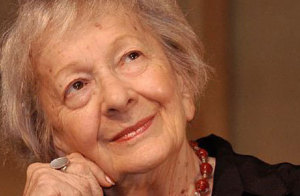 It’s been awhile since I published a prose piece. This snippet is from Wisława Szymborska’s How to Start Writing (and When to Stop) and first appeared in Lit Hub’s Craft of Writing newsletter. It comes from the advice she gave—anonymously—for many years in “Literary Mailbox,” a regular column in the Polish journal Literary Life, and is translated by the indefatigable Clare Cavanagh, who has brought us most of the wonderful Polish poetry and prose that we have in English.
It’s been awhile since I published a prose piece. This snippet is from Wisława Szymborska’s How to Start Writing (and When to Stop) and first appeared in Lit Hub’s Craft of Writing newsletter. It comes from the advice she gave—anonymously—for many years in “Literary Mailbox,” a regular column in the Polish journal Literary Life, and is translated by the indefatigable Clare Cavanagh, who has brought us most of the wonderful Polish poetry and prose that we have in English.
“The same old complaint about ‘youth.’ This time we’re supposed to forgive the author since he still hasn’t been anywhere, experienced anything worth mentioning, or read everything that he should. Such confessions betray the belief (adolescent, hence a bit simplistic) that external circumstances alone make the writer. That his creative quality derives from the quantity of his life adventures. In fact, the writer develops internally, within his own heart and mind: through an innate (we repeat, innate) propensity for thought, acute sensitivity to minor matters, astonishment at what others see as ordinary. Trips abroad? We sincerely hope you’ll take them, they sometimes come in handy. But before you head off to Capri, we suggest a trip to Lesser Wółka. If you come back with nothing to write about, then no azure grottoes will save you.”
 When we were in Krakow a few years ago (sadly we missed Lesser Wółka), there was a museum show called Szymborska’s Desk, which had a facsimile of her writing room with many artifacts. I found it truly charming, and was only sorry I never got to meet the writer herself. Here is her yellow typewriter from that show.
When we were in Krakow a few years ago (sadly we missed Lesser Wółka), there was a museum show called Szymborska’s Desk, which had a facsimile of her writing room with many artifacts. I found it truly charming, and was only sorry I never got to meet the writer herself. Here is her yellow typewriter from that show.

